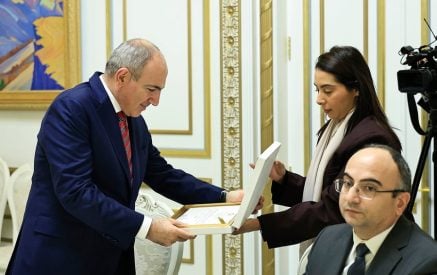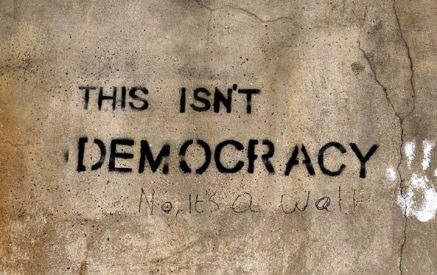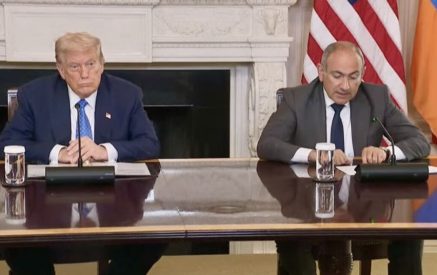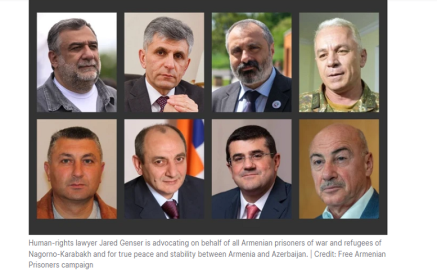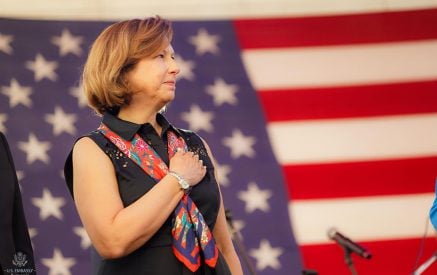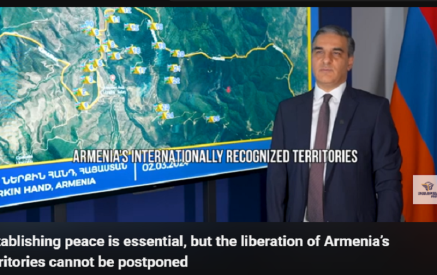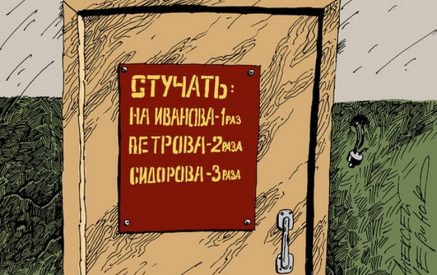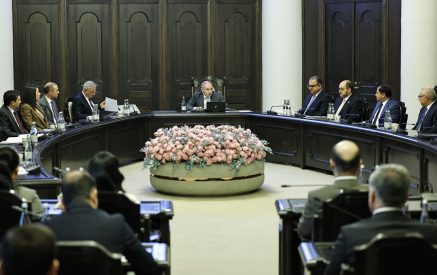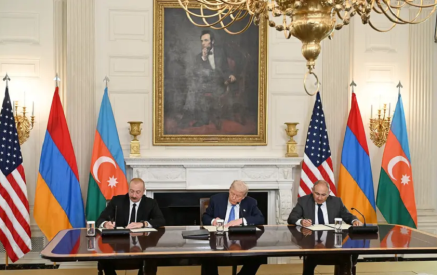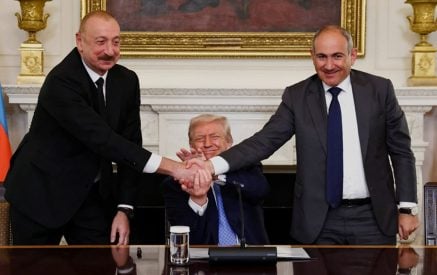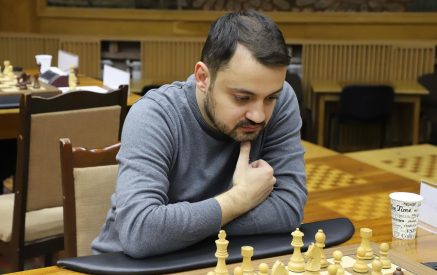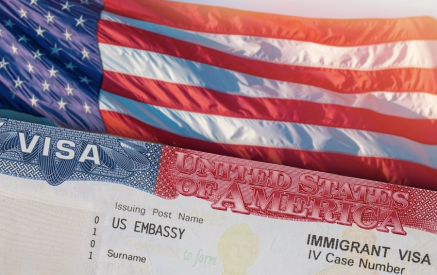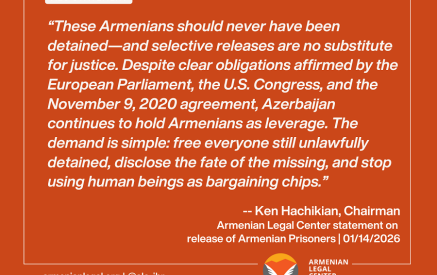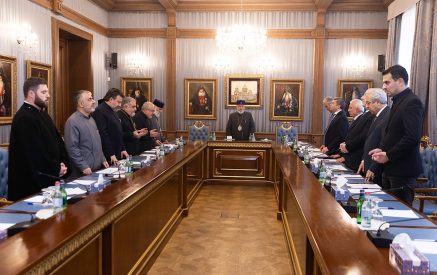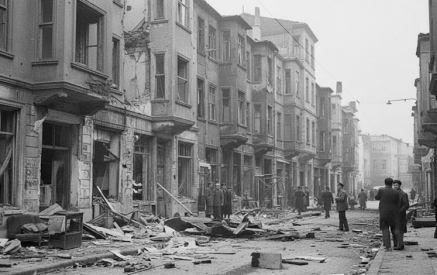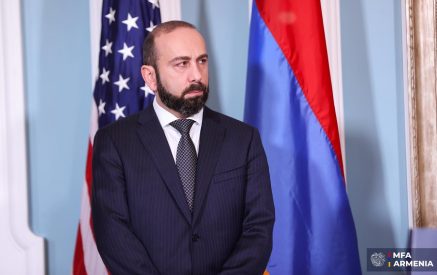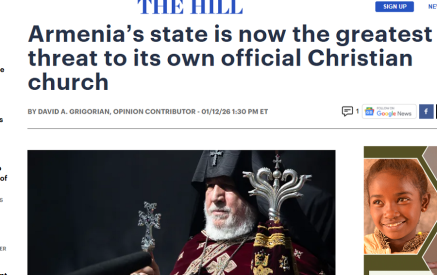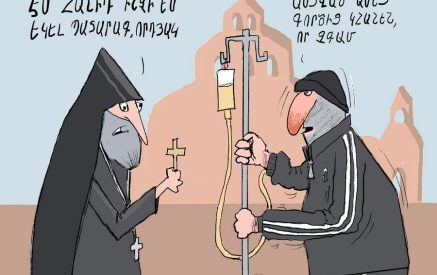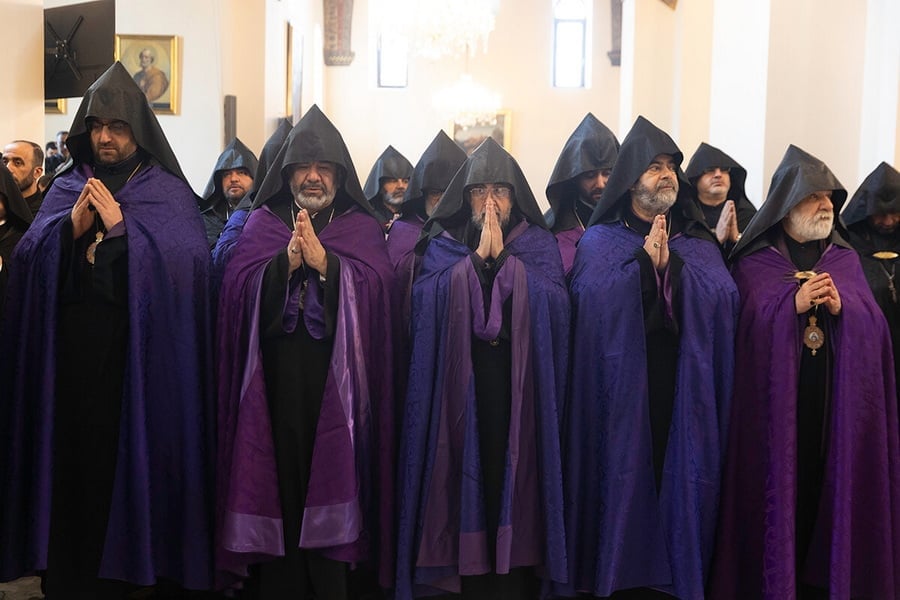I consider it entirely natural for our clergy to express their sorrow over the loss of part of our homeland and the deplorable condition of our displaced compatriots. Taking into account the unique history and mission of our Church, our spiritual leaders and the Mother See must express their concern over the potential loss of Armenian statehood (which is indeed happening).
Faith and homeland, faith and statehood, are in my mind in a strong spiritual unity. For example, I cannot imagine how it is possible to be a child of the Armenian Apostolic Church and oppose “Armenians” and “Karabakhis.” How can one be an Armenian Christian and claim that our compatriots held hostage in Baku “deserve” the suffering they are enduring?
However, entering into everyday politics (politics, not policy), in other words, the struggle for power, is, in my opinion, not the role of a clergyman. It doesn’t matter which side they align with in that struggle: the government, the opposition, or a specific opposition group. Especially getting involved in petty intrigues. Not only is this wrong in essence, but it also turns the clergyman into a target for attacks and insults from representatives of the opposing camp.
…“From everyone to whom much has been given, much will be required, and from whom much has been entrusted, even more will be demanded” (Luke 12:48). I take this upon myself first and foremost. In my view, I have been given more and entrusted with more than, say, an ordinary “status updater” on Facebook or a blogger. This places a greater responsibility on me, particularly in terms of weighing every word I say. The responsibility of clergymen, from priests to bishops, is much greater.
Read also
Aram ABRAHAMYAN


